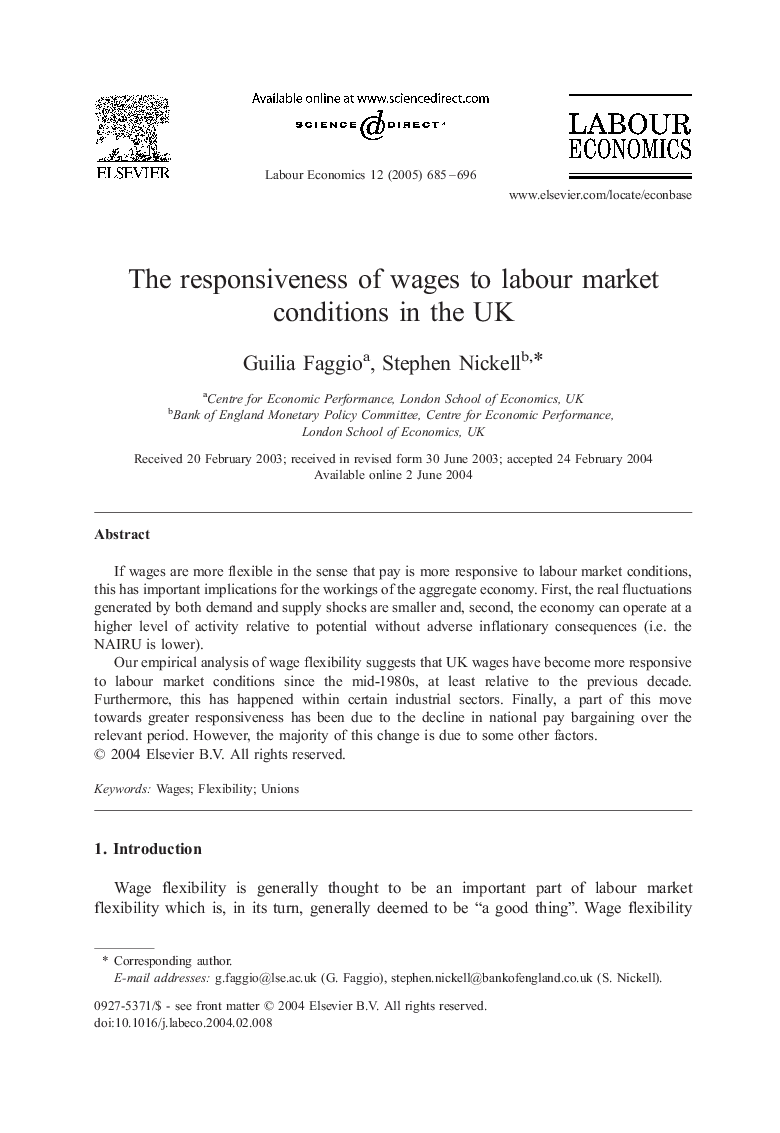| Article ID | Journal | Published Year | Pages | File Type |
|---|---|---|---|---|
| 10479932 | Labour Economics | 2005 | 12 Pages |
Abstract
If wages are more flexible in the sense that pay is more responsive to labour market conditions, this has important implications for the workings of the aggregate economy. First, the real fluctuations generated by both demand and supply shocks are smaller, and second, the economy can operate at a higher level of activity relative to potential without adverse inflationary consequences (i.e., the NAIRU is lower). Our empirical analysis of wage flexibility suggests that UK wages have become more responsive to labour market conditions since the mid-1980s, at least relative to the previous decade. Furthermore, this has happened within certain industrial sectors. Finally, a part of this move towards greater responsiveness has been due to the decline in national pay bargaining over the relevant period. However, the majority of this change is due to some other factors.
Keywords
Related Topics
Social Sciences and Humanities
Economics, Econometrics and Finance
Economics and Econometrics
Authors
Guilia Faggio, Stephen Nickell,
